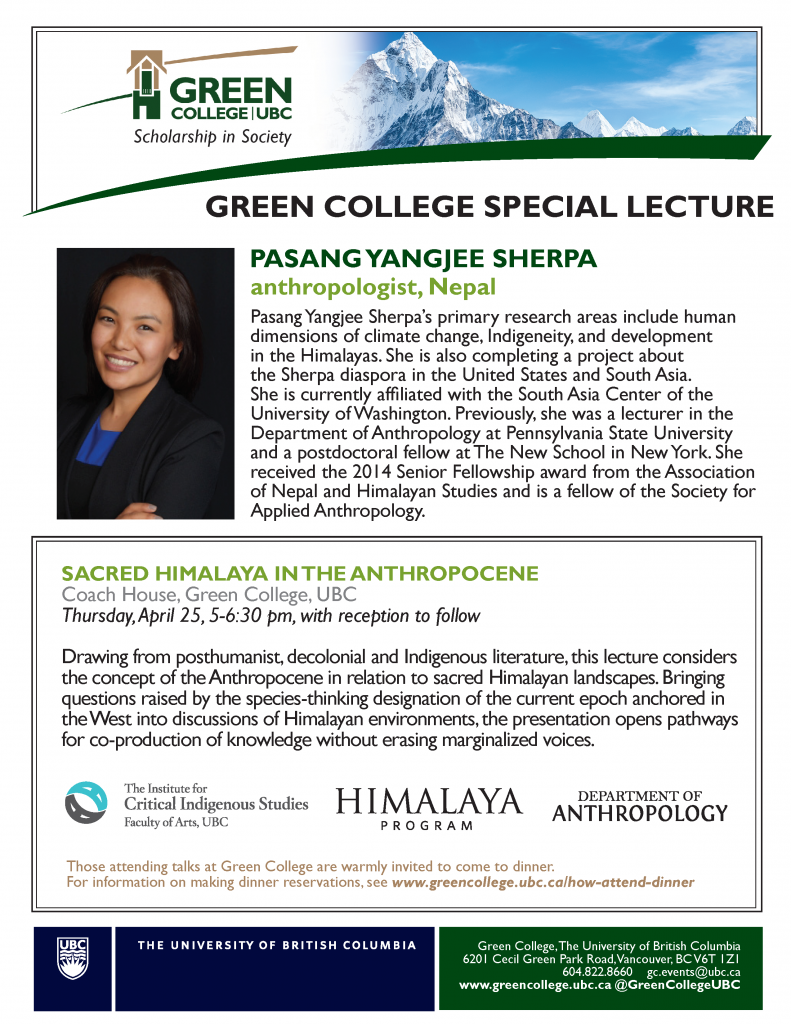This event is a Green College Special Lecture that is co-sponsored by the Institute for Critical Indigenous Studies, the UBC Himalaya Program, and the UBC Department of Anthropology.
Abstract
Drawing from posthumanist, decolonial and Indigenous literature, this lecture addresses the concept of the Anthropocene in relation to sacred Himalayan landscapes to explore competing understandings of human-environment relationships. The category of “Sacred Himalayan landscapes” as conceived of by external secular transboundary conservation and development initiatives is distinguished from Himalayan residents’ experience of the landscape as sacred.
My presentation will compare theoretical insights from the borderlands of India that engage the Anthropocene with current climate change literature from Nepal to reveal emergent investigations across borders. In so doing, I draw on my on-going study of climate change impact and response in Nepali mountain communities, where adaptation efforts are dominated by techno-managerial approaches and bio-physical science. Such approaches contrast with long-standing local practices.
Bringing questions raised by the species-thinking designation of the current epoch as the ‘Anthropocene’ anchored in the West into conversation with experiential knowledge of Himalayan environments, through this lecture I hope to open pathways for co-production of knowledge without erasing marginalized voices, especially in policymaking spaces.

About the Speaker
Pasang Yangjee Sherpa, Ph.D. (2012) is an anthropologist from Nepal. Her primary research areas include human dimensions of climate change, Indigeneity, and development in the Himalayas. She is also completing a project about the Sherpa diaspora in the United States and South Asia. She is currently affiliated with the South Asia Center of the University of Washington. Previously, she was a lecturer in the department of anthropology at Penn State University and a postdoctoral fellow at The New School. She received the 2014 Senior Fellowship award from the Association of Nepal and Himalayan Studies and is a fellow of the Society for Applied Anthropology.